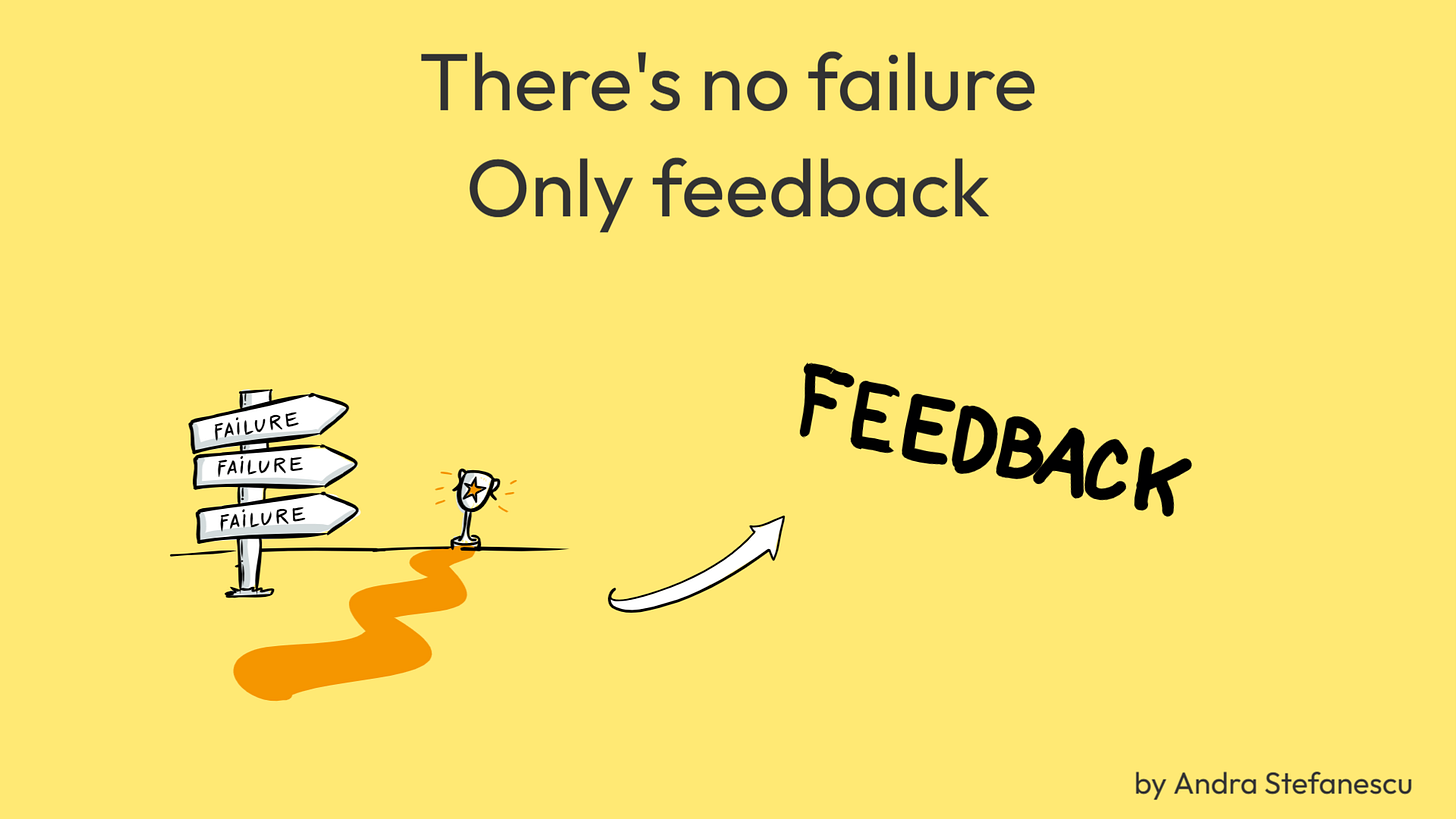What If Failure Was Just a Form of Remembering?
When you stop seeing failure as a dead end, and start seeing it as feedback, confidence returns
Failure has a branding problem.
We treat it like a verdict — when really, it’s just a version.
A draft. A clue. A next step waiting to be recognized.
There is no failure — only feedback.
And when you pair that with another powerful principle —
You already have the internal resources you need to succeed —
suddenly the path forward doesn’t look like "fixing yourself."
It looks like remembering what you’ve forgotten you’re capable of.
💥 Reframing Failure: It’s Not What You Think
In this recent article, I outlined 3 types of failure:
Failure of execution – You had the right idea, but something went off in the doing.
Failure of alignment – You pursued a goal that wasn’t even right for you.
Failure of awareness – You didn’t yet know what you needed to know.
Each one of these isn’t proof that you can’t.
It’s feedback showing you where to adjust — and a prompt to unlock something that’s already inside you.
🔄 From Judgment to Curiosity
Here’s what changes when you live in this place:
❌ “I failed again.”
✅ “What is this experience showing me?”
❌ “I’m missing something.”
✅ “What part of me already knows how to handle this?”
❌ “I’m not built for this.”
✅ “What if I am — and I just need better access to my own resources?”
This reframe isn’t positive thinking.
It’s practical identity work.
🛠️ What This Looks Like in Real Life
You forgot to speak up in a big meeting.
Instead of spiraling into self-blame, you ask:
“What resource did I not have access to in that moment — and how can I practice activating it next time?”
Or your business idea tanks.
Instead of quitting, you ask:
“Was it an execution gap? An alignment miss? Or an awareness blind spot?”
This is how feedback becomes fuel, and failure becomes feedback that respects your potential.
Try this:
Write down the last 3 “failures” you experienced.
Then reclassify each as one of the 3 types.
Next to each, write: “What resource do I already have that I can bring into this next time?”
You might just realize you’ve had what you needed all along.
References:
NLP Practitioner Program by Gina Veverita


